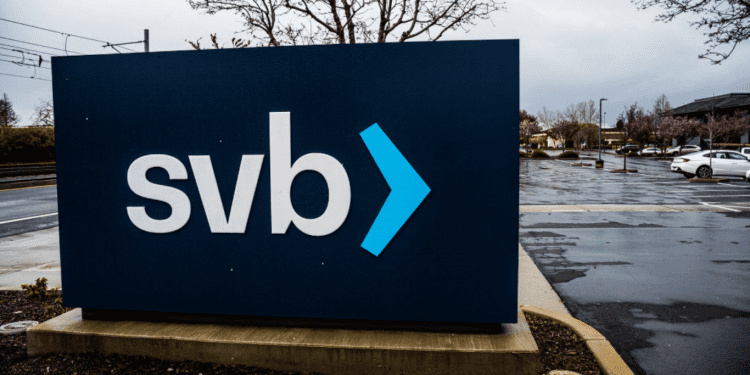- Silicon Valley Bank (SVB) is in trouble as shareholders sue for fraud.
- The suit was filed against Silicon Valley Bank, CEO Greg Becker, and Chief Financial Officer Daniel Beck.
- Among other grave charges, the lawsuit makes reference to fraudulently inflated share prices.
Several shareholders are said to have sued Silicon Valley Bank’s parent company and several of its top executives amid the unfolding crisis.
According to Reuters reports on March 13, the bank’s CEO Greg Becker and Chief Financial Officer Daniel Beck were accused of fraud.
Shareholder reports claimed SVB was “particularly susceptible” to a bank run because Becker and Beck allegedly withheld information on the firm’s interest rates. The complaint explicitly addresses allegations of “mismanaging circumstances” contributing to its collapse. The case against SVB is the first of many securities-fraud actions.
SVB shocked the market two days prior by revealing a $1.8 billion after-tax loss from investment sales and its intention to raise the capital needed to ensure its survival. The bank also looked for a possible deal to save itself, which was deemed unsuccessful, forcing startups to start withdrawing their funds at the advice of venture capital firms. On Friday, California regulators declared the bank had been closed and placed it under receivership.
Receivership typically entails either the FDIC paying depositors up to the insured limit or another healthy bank taking over the bank’s deposits.
Silicon Valley Bank became the most significant US lender to collapse in over a decade. For the past five years, the lender has increased in size four times and was valued at more than $40 billion in 2022.
In a joint statement released on March 12, 2023, Treasury Secretary Janet L. Yellen, Federal Reserve Chairman Jerome H. Powell, and FDIC Chairman Martin J. Gruenberg said:
“Depositors will have access to all their money starting Monday, March 13. The taxpayer will bear no losses associated with the resolution of Silicon Valley Bank.”
According to estimates, Circle held over $3.3 billion of its stablecoin reserves at SVB when California regulators closed the bank on March 10. USD Coin temporarily lost its peg to the dollar. As a result, it dropped to as low as $0.87 on Saturday.
Unrest among Smaller Institutions
The Federal Deposit Insurance Corporation’s appointment as receiver and the state of California’s action to seize control of SVB have added to the unrest among smaller institutions brought on by the US’s swift increase in interest rates. Silvergate Capital Corp. said it was closing its bank only a few days earlier, which sparked a more significant selloff in sector stocks.
Customers in the tech and cryptocurrency startup industries were withdrawing funds due to a downturn in their operations. Banks were already feeling the effects of the rate increase, which reduced the value of their portfolios. In SVB’s case, the unrest worsened as clients hurried to withdraw cash out of concern for the company’s wellbeing.
About SVB
According to a statement from the bank’s 20th anniversary, SVB was established in 1983, following a poker game between Bill Biggerstaff and Robert Medearis. The company has focused on offering financial services to tech startups since its founding.
After showing up at the ailing lender’s offices in California, the FDIC reported on Friday that the bank ended last year with around $209 billion in total assets and approximately $175.4 billion in total deposits.
When SVB failed on March 10, 2023, it was the 16th-largest bank in the United States and the biggest bank in Silicon Valley in terms of deposits.














